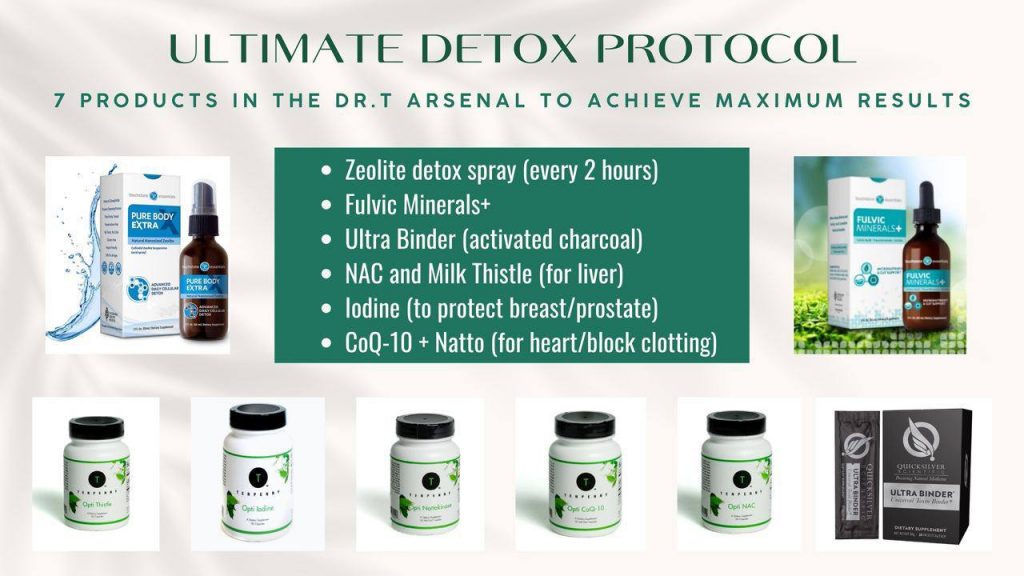by Fed Up Texas Chick, The Tenpenny Report:

Remember all the talk about supply chain shortages due to the COVID pandemic shutdowns? Then, all of a sudden, there’s nothing in the mainstream news. Are supply chain shortages a thing of the past?
Far from it. Supply chain issues do exist, and one in particular could have devastating consequences. Certain medications are in short supply. Between 2021 and 2022, medication shortages increased by 30 percent. By the end of 2022, nearly 300 medications were on the shortage list.
TRUTH LIVES on at https://sgtreport.tv/
Medications on the Endangered Species List
In particular, certain antibiotics are nowhere to be found. For over six months, shortages of the commonly prescribed wide-spectrum antiobiotic amoxicillin have been reported across the US. This drug is the number one prescribed antiobiotic in America, and is used for ear infections, pneumonia and all sorts of things. Formulations commonly used for children – liquid suspensions and chewables – are in the shortest supply. Patients are telling stories about having to go to four or five different pharmacies just to fill these prescriptions.
Injectable medications experience the worst shortfalls; one example is propofol, a sedative used by anesthesiologists before surgery. Another example is methotrexate, used to treat inflammation caused by arthritis and psoriasis. This is best explained when one realizes that 95% of our US injectable drugs are dependent on raw materials from either China or India. In March, a nationwide shortage of the asthma drug albuterol was reported and is now getting worse. The drug Adderall, used to treat ADHD is in short supply as is the drug Ozempic, a type-2 diabetes treatment.
Chemotherapy drugs are one of the top drugs experiencing shortages. Nearly 25 first-line cancer treatments are in short supply, fueled by “expanded demand”. Could the demand be for the turbo cancers being fueled by the COVID-19 jabs? Interestingly, many of the drugs are used to treat pediatric cancer patients. Is there a common thread here?
The result is delayed or denied treatment, and ultimately shorter life spans. A key predictor of patient outcomes is getting the right dosage on the right schedule, as outlined in one study example published in 2020 and showing that a one-month delay increased death risk by as much as 13 percent.
Some pharmacies are reporting severe limitations, such as one bottle per pharmacy per day, while other representatives, like those from CVS, say there are no issues and everything is fine. The FDA reports on shortages, but the drug does not make the list if at least one manufacturer can supply it, so this reporting is a bit misleading to say the least, because this does not translate into the national needs being covered. The FDA is mum on the topic, reassuring us that while there are a few isolated supply chain issues, everything is fine.
National Security Risk
The US Congress thinks it is so bad that it constitutes a national security risk, and the Senate Homeland Security and Governmental Affairs Committee is holding meetings, writing reports and likely writing sternly worded letters as we speak.
Congress is a little late to the game, as is typically the case. This has been a catastrophe in the making for a long time. For at least a decade, many patient advocacy groups have urged Congress to implement longer-term solutions. Why haven’t they? I think we all know the answer.
What are the drivers for this shortage situation?
Quite often, we are told “authorities are not sure what is causing the shortages.” Really? You mean there is no one in our bloated federal government that can answer that question? The FDA maintains the shortages database; can the FDA not answer this question? Why can’t the FDA properly predict drug shortages? No one in private industry can answer it either? The American Society of Health-System Pharmacists maintains a database of drug shortages similar to the FDA. Can they answer the question? What about big pharma? Can they answer the question? Maybe all of these entities can, but they’re just not talking.
If a reason is given, one common theme is the “unprecedented demand” for certain medications during the Covid-19 pandemic, but the “unprecedented” narrative of COVID-19 is wearing thin, and it’s even more complicated than that.
The US is highly dependent on foreign suppliers in India, China and other countries. In fact, many US drug manufacturers have foreign operations; these moves have occurred over several decades. The foreign countries offer lucrative incentives, such as far fewer regulations, the ability to control the full supply chain from starting ingredients to finished product, and tremendous tax incentives.
Read More @ TheTenpennyReport.com



